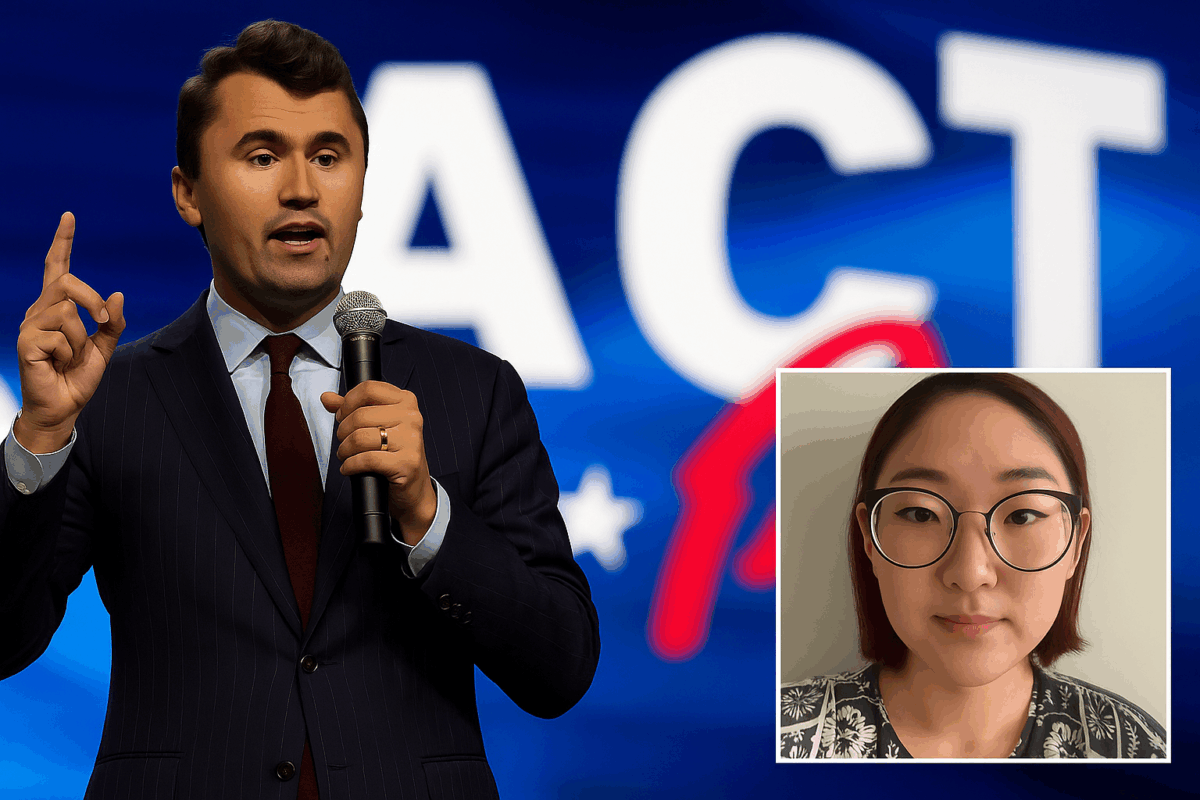A Nation in Shock After Charlie Kirk Assassination
America has been shaken to its core after the shocking assassination of conservative activist Charlie Kirk, founder of Turning Point USA. Known for his fiery speeches and polarizing influence, Kirk’s sudden death has not only devastated his followers but also unleashed a storm of dangerous rhetoric across the internet.
In the hours following the news, an Oberlin College student ignited nationwide outrage by suggesting that it was time to “bring back political assassinations.” What was once whispered in the dark corners of extremist forums has now been spoken publicly by a young academic voice.
The Oberlin Student’s Chilling Words
The viral video, allegedly filmed by a student at Oberlin College, captured her cold and calculated declaration: “We don’t need peaceful debates anymore. We need fear. We need to remind leaders that their power comes with consequences. Political assassinations should return.”
Those words cut through social media like a knife. Within hours, millions had seen the clip, sparking fierce debate. Was this simply “free speech” in a polarized nation, or was it a dangerous escalation toward organized violence?
Extremism on Campus: A Brewing Storm
What’s particularly alarming is the setting: Oberlin College, a historically progressive campus often associated with activism. While the institution has prided itself on intellectual freedom, critics now accuse universities of becoming breeding grounds for extremism.
Conservative commentators argue that the Oberlin student’s words are not isolated—they represent a radical undercurrent where political violence is not only justified but romanticized. On the other side, some far-left voices disturbingly praised the comments, labeling Kirk as a “symbol of oppression” whose death was “inevitable.”
Free Speech or a Call to Arms?
The First Amendment in the United States fiercely protects free expression. Yet the Oberlin incident forces a critical question: when does speech cross into incitement?
Legal experts note that explicitly calling for assassinations could fall under “true threats,” which are not shielded by the Constitution. But in a climate where shock value goes viral faster than rational debate, extremist statements gain traction before authorities can act.
The Rise of Extremist Thinking Among Youth
This episode exposes a darker reality: America’s younger generation is increasingly flirting with radical ideologies. From militant climate groups to far-right militias, the idea that violence is the “only answer” is gaining foothold among students who once preached peace.
The Oberlin student’s words reflect not just frustration, but an emerging culture of revolutionary romanticism—where bloodshed is seen as a shortcut to political change. In the wake of the Charlie Kirk assassination, such rhetoric feels less like fantasy and more like a potential roadmap for the next attacker.
A Dangerous Precedent
If public figures can be targeted and their deaths celebrated—or even justified—what does this mean for the stability of American democracy? The fear is clear: today it’s Charlie Kirk, tomorrow it could be any leader, liberal or conservative.
The Oberlin controversy sets a dangerous precedent. If universities, politicians, and tech companies fail to address this growing appetite for political bloodshed, the United States could spiral into an era where assassination becomes normalized once again.
Conclusion: A Warning for America
The Oberlin student’s remarks following the Charlie Kirk assassination are more than reckless—they are a warning. A generation raised in political chaos is showing signs of embracing violent solutions.
What America faces is not just a tragedy but a tipping point. If society shrugs off such rhetoric as “just talk,” the line between words and bullets could vanish. And when that happens, democracy itself may be standing in the crosshairs.


